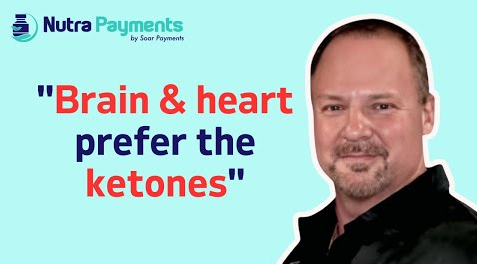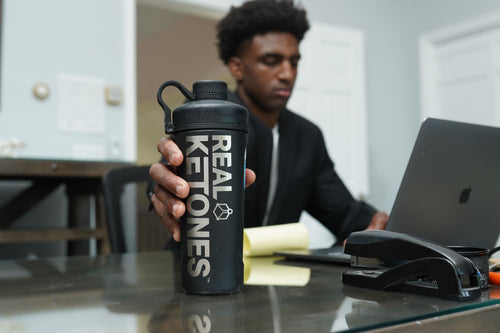Gaining Body Fat: Why And How To Kick It
Key Takeaways:
-
Everyone's metabolism SHOULD be fat-adapted and thus, metabolically flexible-this means you're adept at using both fat and carbs for energy.
-
Just following a ratio of low carb (or any ratio) isn't going to cut it-you still need to eat nutrient-dense, properly-sourced food.
-
You cannot follow the low rent science of eating many small, frequent meals. Less meal frequency is still key.
Yes, some people will do better following a keto approach all the time, but for many of us oscillating between low carb (rest days, oxidative training days aka long-duration cardio) days and carb-containing (glycolytic days aka resistance training) days work best.
Overeating fat can also make you fat-yes, even healthy fat. Optimal health & fitness is the goal- our focus on metabolic flexibility that comes from a fat-adapted metabolism is the key factor everyone needs to have-not simply eating low carb all the time.
How Eating Too Much Dietary Fat Can Make You Gain Body Fat
What keto zealots don't understand is that over-consumption of fat can lead to a fatty liver and unwanted storage of fat around other organs.
Elevated fatty acids can end up in all kinds of places-muscle, kidneys, liver, brain, etc. How much is too much? This will vary but depends on your overall total intake, total fat utilization via oxidative (fat-using) exercise (i.e. walking), total energy intake and expenditure (calories in vs. out), and how healthy your mitochondria are (your cellular energy batteries that fuel everything you do).
Does This Mean I Can Switch To High Carb?
Nope-some populations such as youth, student-athletes, pro athletes, and bodybuilders are going to do best with high carb DAYS. Not high carb all the time.
For review, excess carbohydrates at excess carbohydrate feeding frequencies are still going to have the same ill effects on your blood sugar, health, performance, fat gain, etc. This overconsumption of carbs still tax your insulin receptor sites (how you store carbs) and, like an iPhone battery, get less sensitive over time. This results in a poor ability to utilize carbs properly and to store them as muscle glycogen.
So...Like...How Should I Eat Then?
I don't want to give you a politician's answer, but it depends. If you're in an older population, have blood sugar issues, are obese, an endurance athlete, have certain medical conditions, and/or don't do any carb-burning activities, you're better off with some type of ketogenic or modified Atkins (low carb) diet.
If you're a student-athlete, bodybuilder, an athlete in strength sports, perform regular resistance training, have a clean bill of health, are lean (under 15% body fat), or are a professional athlete in a sport that does largely recruit fast twitch muscle fibers, you're better off introducing some carbs on a spectrum of moderate to high.
What IS key, even if you're eating carbs, is to oscillate between low carb days and higher carb days.
The takeaway is that optimal health and fitness is what you’re chasing-not ketones. However, the presence of ketones in the metabolism in some capacity is a key component to optimal living.

 ACCOUNT
ACCOUNT
 CART
CART





